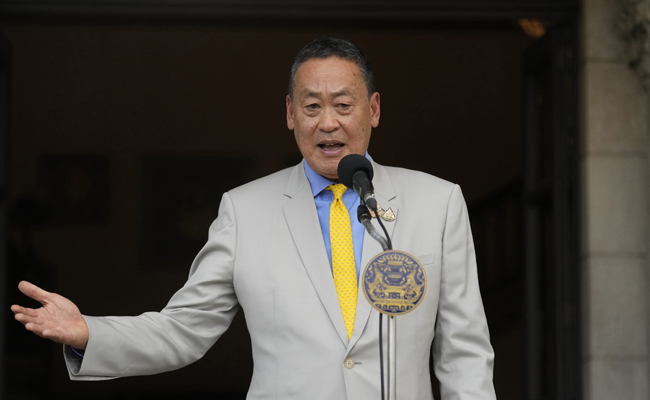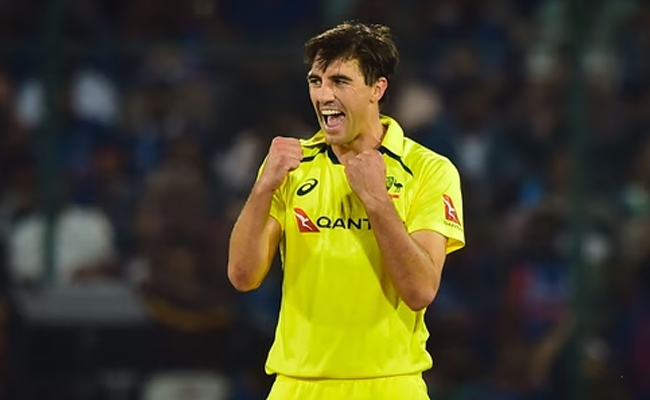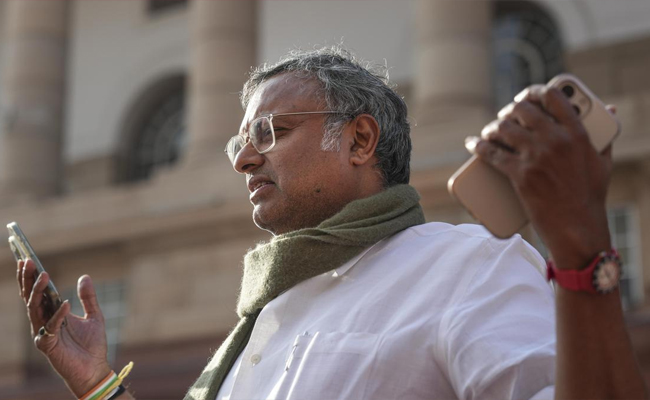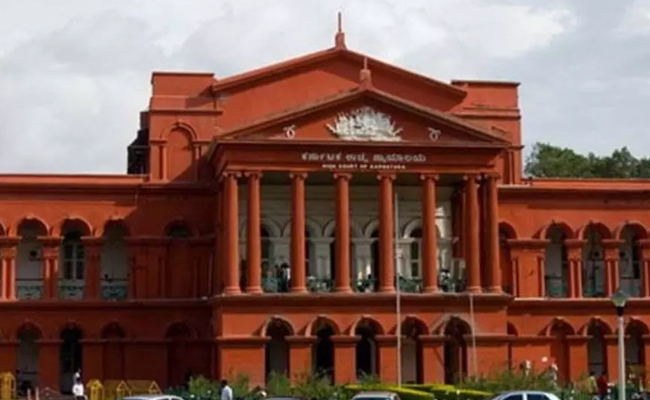Bangkok (AP): A court in Thailand on Wednesday removed Prime Minister Srettha Thavisin from office over an ethical violation, further shaking up Thai politics after the court-ordered dissolution of the main opposition party a week ago.
The Constitutional Court ruled on a case involving Srettha's appointment of a Cabinet member who had been imprisoned in connection with an alleged attempt to bribe a court official.
The court voted 5:4 against Srettha and the ruling removed him from office immediately.
The Cabinet will remain in place on a caretaker basis until Parliament approves a new prime minister. There is no time limit for Parliament to fill the position. The caretaker Cabinet could also dissolve Parliament and call a new election.
The acting PM is expected to be Phumtham Wechayachai of the Pheu Thai party. Phumtham was first deputy prime minister and commerce minister under Srettha.
If Parliament is given the task of choosing a new prime minister, it can select from a roster of candidates nominated for the post last year by the major political parties. The Pheu Thai Party, to which Srettha belongs, has two eligible candidates, including Paetongtarn Shinawatra, the daughter of former Prime Minister Thaksin Shinawatra.
Another frontrunner would be Anutin Charnvirakul, head of the Bhumjaithai Party, which ran third in last year's election. He is currently a deputy prime minister and interior minister. Anuthin, a powerbroker in the vote-rich northeast whose family owns a major construction group, has served in both a military-backed government and the civilian one that it replaced.
Also in the running would be two former senior military officers: Prayuth Chan-ocha, who served as prime minister for nine years after staging a coup in 2014, and Prawit Wongsuwan, who was one of Prayuth's deputy prime ministers.
Srettha, speaking at Government House shortly after the verdict, thanked the judges for giving him the opportunity to defend himself. He said he respected the ruling and that he always sought to act ethically during his time in office.
“I'm sorry that I'd be considered as a prime minister who's unethical, but that's not who I am," he said.
Srettha had appointed Pichit Chuenban as a minister of the Prime Minister's Office in a Cabinet reshuffle in April. Pichit was jailed for six months in 2008 on contempt of court charges after he allegedly tried to bribe a judge with 2 million baht (USD 55,000) in cash in a grocery bag over a case involving Thaksin, the former prime minister.
Pichit resigned from the post weeks after being appointed when controversy over the incident was revived.
The court said that although Pichit has already served his jail term, his behavior — as ruled by the Supreme Court — was dishonest.
Srettha as prime minister has sole responsibility for vetting the qualifications of his Cabinet nominations, the court ruled. It said he knew about Pichit's past but still nominated him, and therefore it ruled that he violated the ethics codes.
The petition against Srettha was initiated by former members of the military-installed Senate who had refused to approve Move Forward's prime ministerial candidate when the party was attempting to form a government after its election victory.
The petition against Srettha was seen as a move favouring a pro-military political party in his coalition government.
Thailand's courts, especially the Constitutional Court, are considered a bulwark of the country's royalist establishment, which has used them and nominally independent state agencies such as the Election Commission to issue rulings to cripple or sink political opponents.
Srettha became prime minister in August last year, despite his Pheu Thai party finishing second in the general election. After Move Forward was denied power by the Senate whose term ended in May, Pheu Thai — then the biggest partner of Move Forward — excluded it from the coalition and joined hands with parties affiliated with the previous military-controlled government to gather enough support from other parties and the Senate to approve a new prime minister.
Srettha, 62, was a real estate executive before entering politics. He prioritized opening up Thailand after almost a decade of military-backed rule, frequently travelling abroad for trade negotiations. His party pushed a populist plan for a 10,000-baht (USD 286) handout policy to stimulate the economy, a key promise in its campaign last year, though it has been delayed by technicalities largely involving funding.
His government also promoted Thai cultural products through a “soft power” agency and the critical tourism sector by loosening entry requirements and other measures.
Srettha, who tried to project an image of a strong CEO, was seen by critics as an agent for Thaksin, who returned last August to submit to a plea deal his detractors say was essential to Srettha gaining the premiership.
The Constitutional Court last week ordered the dissolution of the progressive Move Forward Party over an accusation that the party violated the constitution by proposing an amendment to a law against defaming the country's royal family. The party has already regrouped as the People's Party.
Let the Truth be known. If you read VB and like VB, please be a VB Supporter and Help us deliver the Truth to one and all.
New Delhi (PTI): At least 10 flights were cancelled and more than 270 flights were delayed at the Delhi airport due to fog and low visibility conditions on Tuesday.
An official said 6 arrivals and 4 departures have been cancelled for the day.
ALSO READ: Central laboratory confirms avian flu outbreak in parts of Alappuzha, Kottayam districts
Over 270 flights have been delayed and the average delay time for departures is 29 minutes, as per information available on flight tracking website Flightradar24.com.
"Visibility at the airport is improving; however, flight departures for certain destinations may experience delay," Delhi airport operator DIAL said in a post on X.
The Indira Gandhi International Airport (IGIA) in the national capital handles around 1,300 flight movements daily.





